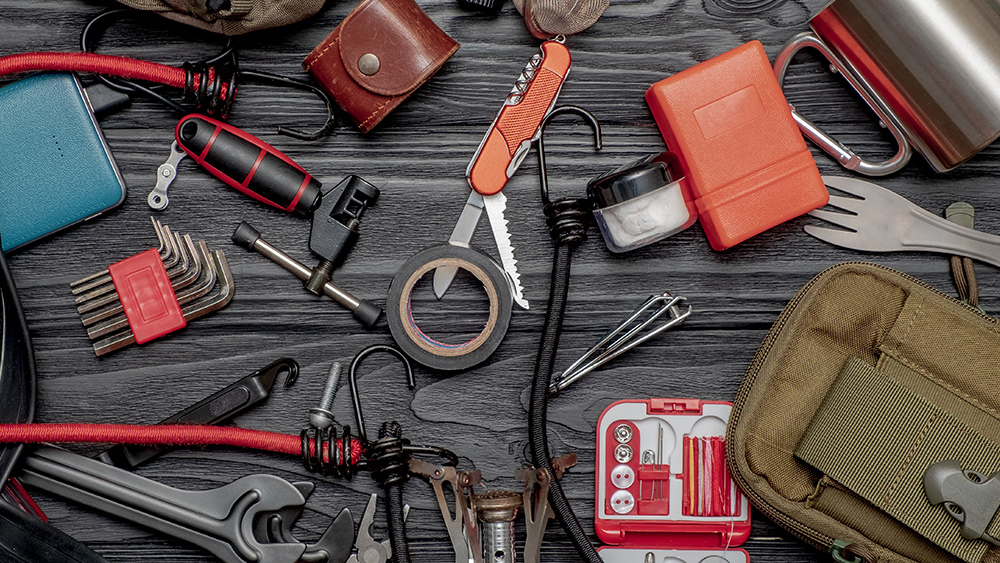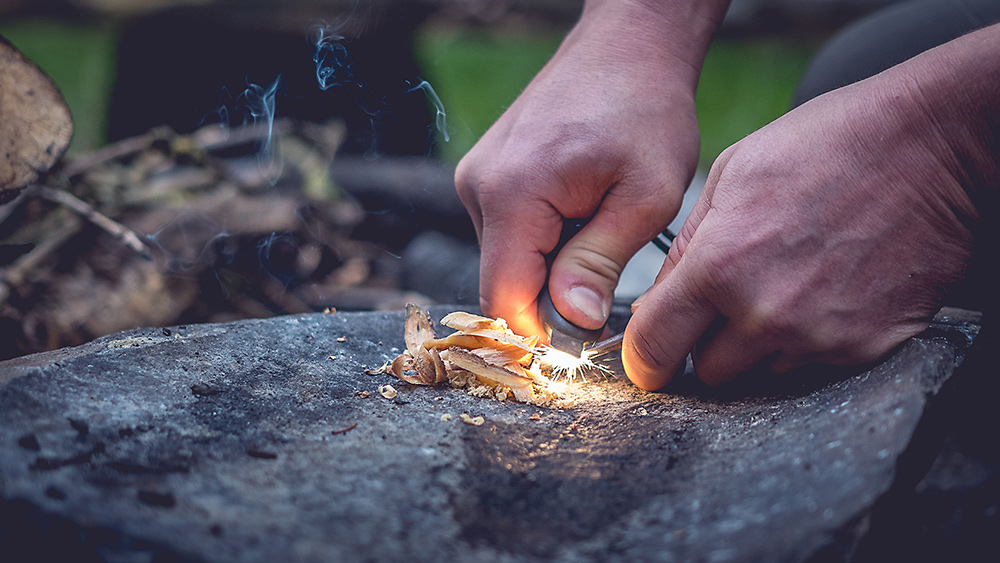A survival kit MUST: Zip ties could save your life
By Zoey Sky // Jun 26, 2019
TAGS: bugout, cable ties, Collapse, disaster, emergency, fasteners, Gear, multipurpose survival supplies, off grid, preparedness, prepper, prepping, self-reliance, SHTF, survival, survival gear, survival skills, survival supplies, Survival Tips, zip ties

Zip ties (also called cable ties) are used to secure electrical cables or wires. But these colorful and handy plastic fasteners also have countless survival uses when SHTF, like securing your gear and repairing shoelaces. (h/t to ReadyNutrition.com)
Tips for using zip ties
Zip ties are usually designed for indoor use and will deteriorate over time when exposed to direct sunlight. When buying zip ties for your survival gear, buy durable fasteners that are weather- and UV-resistant.
Take note that cable ties can weaken in extreme temperatures and when used to secure heavy loads. For emergency planning, use industrial strength zip ties.
Here are some survival uses for zip ties.
- Camping DIY repair – You can repair broken hooks and loops on a tent or your gear using zip ties.
- Color-coordinating your gear – You can use different colored zip ties to mark different pockets or compartments in your bug-out bag. This will help you remember what items are in different sections of your bag. For example, you can use blue zip ties for water (filters and purification tablets) and red ties for fire-making (ferro rods, matches, and tinder).
- DIY spear – You can use zip ties to make a DIY spear by lashing a knife to the end of a long, sturdy branch. Make sure you use heavy-duty ties for this because they need to be tight. Use pliers on your multi-tool to pull the zip ties tight.
- Fasten tarps to an emergency shelter – When packing tarps in your preps, include several zip ties.You can use the cable ties to fasten your tarp when building an emergency shelter.
- Handcuffs – After you subdue an attacker who has broken into your home, you can use zip ties as makeshift handcuffs. Buy larger, wider zip ties for more holding power.
- Hands-free lighting – If you don't have a headlamp, you can use zip ties to secure a mini flashlight to a pair of safety glasses. You can use the makeshift headlamp if you need both hands free for activities like climbing.
- Hang tools – Loop a zip tie through the hole in the handle of tools likes brooms or shovels and other tools. This makes them easier to hang, and you can now hang multiple tools from a single hook or nail.
- Makeshift belt loop – You can attach gear that you often use to your belt loops using zip ties. Cable ties can also be used to secure items on the MOLLE (Modular Lightweight Load-carrying Equipment) webbing of your bug-out bag. (Related: 23 Items you’re probably throwing away but SHOULDN’T.)
- Medical emergencies – You can use zip ties to secure bandages or as a makeshift splint.
- Quick lock – You can use several zip ties to secure all the zippers in your bag or the compartments on a toolbox. Zip ties are difficult to remove unless you cut them, which can discourage looters.
- Repair backpack straps – If your bag strap breaks, you can repair it using some zip ties.
- Rolling up your gear – Use one or more zip ties in a chain to keep large items, like a bedroll or a thick winter jacket, tightly packed so they use up less space in your bag.
- Shoelaces – You can use several zip ties as a makeshift shoelace until you can replace your shoelaces.
- Snares – You can use zip ties to make snares for catching small game like squirrels and rabbits.
- Trail markers – When camping in an unfamiliar area, you can use brightly colored zip ties as DIY trail markers.
- Zipper hack – If your zipper malfunctions, loop a zip tie through the end of the zipper, then zip up your pants. Hook the loop onto your button, then button your pants.
Use sturdy zip ties to secure your supplies or repair your gear when SHTF.
Sources include:
Related Topics
bugout cable ties Collapse disaster emergency fasteners Gear multipurpose survival supplies off grid preparedness prepper prepping self-reliance SHTF survival survival gear survival skills survival supplies Survival Tips zip tiesLatest News
04/26/2023 / By Ethan Huff
04/26/2023 / By JD Heyes
04/26/2023 / By JD Heyes
04/26/2023 / By Ethan Huff
04/26/2023 / By Ethan Huff
Related News
01/24/2023 / By Zoey Sky
01/17/2023 / By Zoey Sky
12/02/2022 / By Zoey Sky
09/23/2022 / By Zoey Sky
03/06/2022 / By News Editors
03/02/2022 / By JD Heyes
03/01/2022 / By Mike Adams
Take Action:
Support NewsTarget by linking to this article from your website.
Permalink to this article:
Copy
Embed article link:
Copy
Reprinting this article:
Non-commercial use is permitted with credit to NewsTarget.com (including a clickable link).
Please contact us for more information.
Please contact us for more information.





















